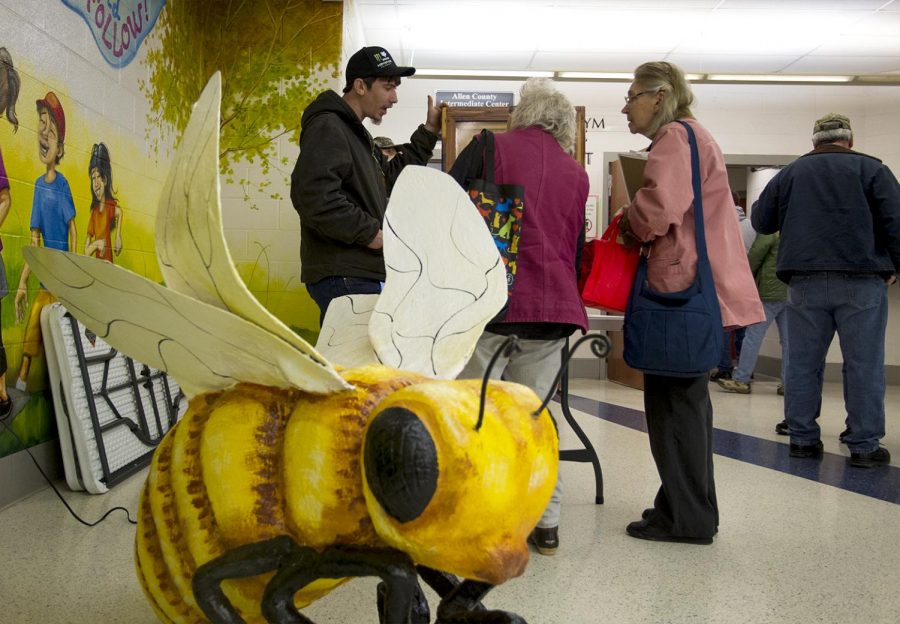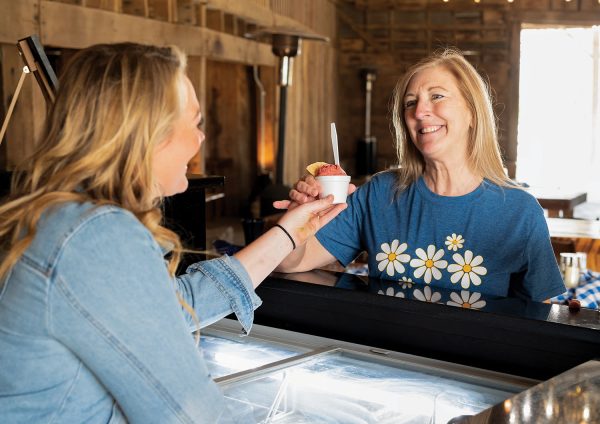Allen County program creates buzz for learning
February 7, 2017
The Allen County Bee Keeper’s Association held its annual Allen County Bee School program Saturday at the Allen County Intermediate School to educate local beekeepers of all levels in Southcentral Kentucky.
Several unique classes were offered such as Hive Observation and Cooking with Honey. The president of the ACBKA, Michele Boling, described the importance of the event to those wanting to learn about beekeeping.
“Keeping bees is not just as simple as buying a box of bees and throwing them in the back corner of your yard,” Boling said. “Bees have a lot of challenges these days, and beekeepers have to understand their bees in order for them to survive.”
The beekeeping community experiences difficulties maintaining hives because of diseases like Colony Collapse Disorder: an unknown condition affecting colonies with a disappearance of worker bees.
This disorder and other diseases can create unexpected population loss in wild and domestic bees. It is not a specific disease or influence from another organism, but simply the marked loss of vital pollinators that is detrimental to the hives and the ecosystem.
Bees are important in the ecosystem because of their active role in pollination, as pollinator bees increase fertilization of all plant species. The disappearance of bees and sustaining their health is concerning for scientists and beekeepers. In 2016, the United States Fish and Wildlife placed seven species of Hawaiian Bees on the endangered species list.
Harris Overholt explained how the Allen County Bee School had educated keepers in sustainable beekeeping and the endangerment of hive populations.
“People with new bees or wanting to get into beekeeping can see how to assemble the wood ware of a beehive; how to care and what to look for in the bees,” Overholt said.
Overholt continued to explain how the Allen County Bee School program has been successful in educating beekeepers of Southcentral Kentucky.
“We have developed through these 13 years,” Overholt said. “The last two years we have invited a nationally-renowned speaker to be a part of our program, and that has helped with the education and today it was Jennifer Berry who is from the University of Georgia, and she is a lab assistant and works with pesticides — their effect on insects.”
Research is fundamental to understanding and preserving the health of bee colonies. Bee schools provide a platform for researchers to share and inform beekeepers of the advancements in melittology: the scientific study of bees.
“Bee schools help disseminate current research, and best practices for taking care of your bees,” Boling said. “This is a moving target, and every year there is new information and new techniques.”
The sharing of new information and techniques is vital in preserving bee life. For newcomers interested in beekeeping, bee schools across the country provide the proper beekeeping education.
Bee School attendant Bobby Bush explained how his participation in the program this year has benefited his knowledge in beekeeping.
“One of the things I learned today was that I can take the healthy hives that I have and split them to make two hives out of them,” Bush said.
Providing beekeepers like Bush with new techniques and information is the basis of the Allen County Bee School’s existence.
In the state of Kentucky, beekeepers have a list of beekeeping organizations. At WKU, the Office of Sustainability has a beehive. Students who have an interest in beekeeping can join the student organization Big Red Beekeepers.
Reporter Danielle Chavis can be reached at 270-745-6288 and [email protected]




















![Megan Inman of Tennessee cries after embracing Drag performer and transgender advocate Jasmine St. James at the 9th Annual WKU Housing and Residence Life Drag Show at Knicely Conference Center on April 4, 2024. “[The community] was so warm and welcoming when I came out, if it wasn’t for the queens I wouldn’t be here,” Inman said.](https://wkuherald.com/wp-content/uploads/2024/04/smith_von_drag_3-600x419.jpg)





